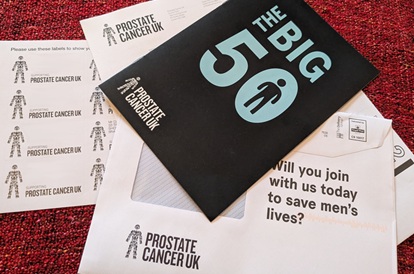
That is according to a new nationally representative study by Royal Mail MarketReach – backed by the Advertising Association – which reveals the true commercial impact of trust for brands.
The Trust Factor report, which combined qualitative research with an online survey of over 4,000 UK consumers, has been developed in collaboration with market research agencies Tapestry and Map The Territory.
It reveals that, when it comes to communucations, trust overrides every other factor, with three-fifths (59%) of consumers saying that trust plays a vital role in persuading them to consider a product or service, compared to just 5% who are motivated by simply seeing an ad.
Meanwhile, 92% of consumers will ‘act’ or ‘do something’ if they trust an organisation or brand, with 74% saying they will even spend more, while they are 47% more likely to choose a brand they trust over competitors.
On the other side of the coin, 60% of consumers who have stopped using a brand admit that it is because they do not trust that brand anymore.
The report details the “eight pillars of trust”: reliability; reciprocity; aligned interests; familiarity; fame; frequency of communication; and tenure.
However, it argues that the degree to which an audience trusts what a brand or organisation says in its communications depends mostly on two variables: firstly, how much the brand is trusted, and secondly how much the channel is trusted.
It claims there are many reasons for mail to be seen as the most trustworthy, although perhaps the most important is both time and money taken to deliver a personal message.
Consumers send mail themselves and so believe that it is authentic and not ‘fake’. Mail is seen as reliable – the number one trust building pillar – and because it is personal, it fits well with many of the other pillars, particularly as it can demonstrate reciprocity, aligned interests and stake.
The unique value that consumers place on mail means it clearly has a role to play when it comes to building trust with all target audiences, the report claims.
To restore trust, organisations should repair whichever of the eight pillars of trust have been damaged and deal with the problems experienced by customers or service users efficiently and effectively.
Academic expert Joel Klettke explained: “You can rebuild trust by acknowledging mistakes. When doing this, make sure to use plain language and rebuild through storytelling. Get customers to share how they’ve seen a change.”
And while losing trust may be expensive, the long term gain can exceed the investment required to repair and rebuild it. It is even possible to turn disappointed and disaffected customers into advocates for your brand.
The report concluded: “Managing trust is an ongoing challenge for all brands and organisations. There will always be reasons that mean you need to improve your customer service and build your offer to make it stronger and more market leading.
“Customers have a constant need for communications that remind them of the reasons why they chose your brand, and why they should continue to do so. Competitors will continue to launch products or services to rival yours, no matter how outstanding they might be. The price of success is constant vigilance.”
Related stories
Fresh boost as firms shift budgets to targeted marketing
Bellwether reaction: Are one-to-one channels now king?
Direct marketing purrs like a Roller as adland splutters
Brands urged to embrace mail to drive digital marketing
Direct mail to join cross-media measurement tool pilot
Digital down as traditional channels return to the mix
Spooner on…pushing the envelope of effective marketing
Loyalty marketers warned not to ditch traditional media



Be the first to comment on "Direct mail ‘more trusted than TV, OOH, press or email’"